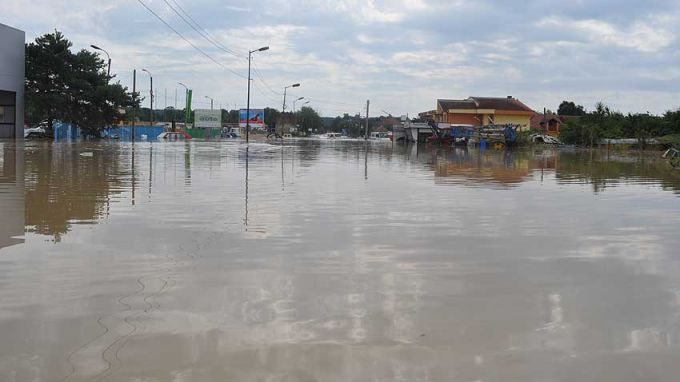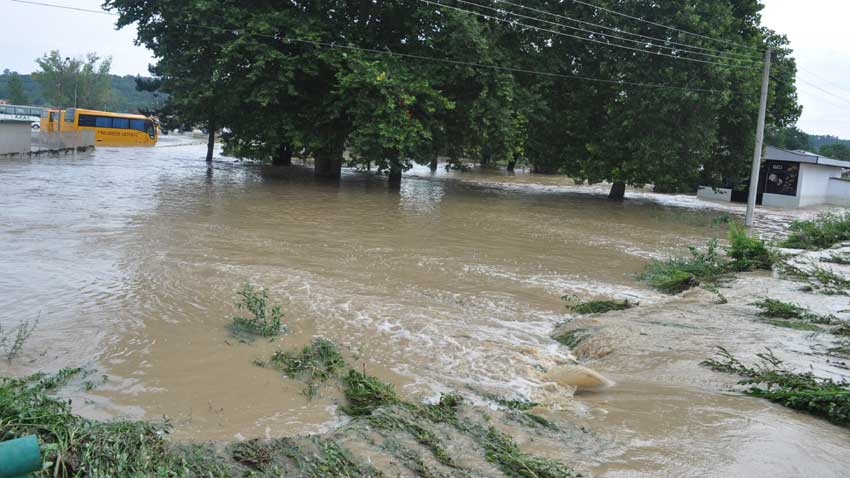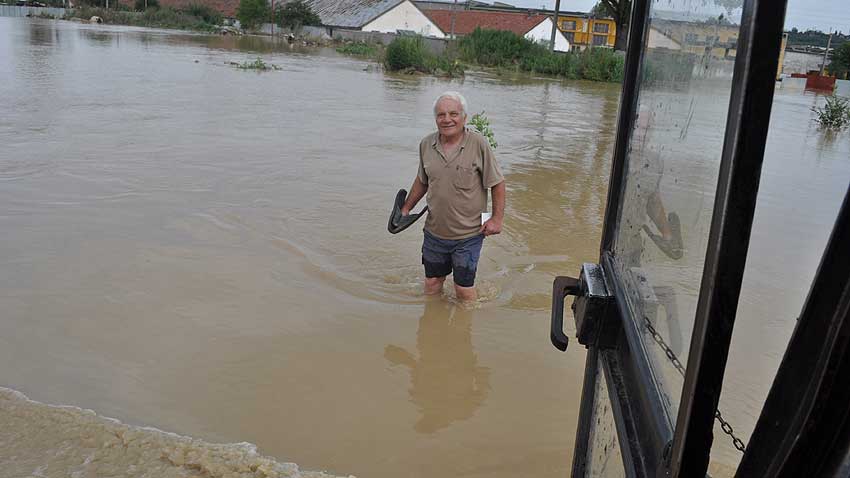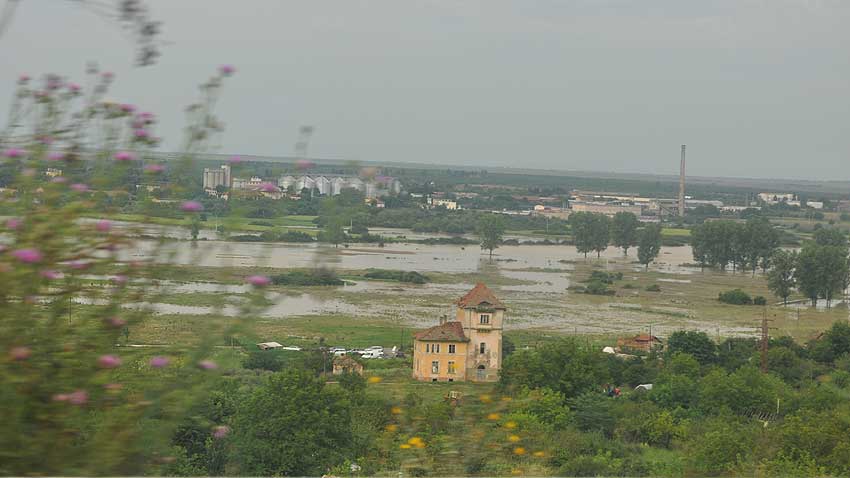 9
9
Despair, wrath and grief – this is the mood pending over the flood stricken town of Byala Slatina, northwestern Bulgaria. In the sunny Friday afternoon of August 1, a wave of water came as if out of the blue, took the town by surprise and in less than half an hour swallowed streets, houses and shops. . . Electricity was cut. The Skat River, otherwise calm tributary of the Danube, went practically crazy, bringing harm all over the place.

During the night preceding the flood, Byala Slatina was soaked by 86 liters per square meter of rain. This is 1.5 times more than the usual amount of rainfalls for July. However, no one expected the Niagara-like wall of water would cause a disaster. The tide swept the town unexpectedly, reaching 1.80 meters at some points, covering the bus terminal, the streets, the bridge over the river itself and basements, sucking in furniture and household devices and tossing cars around like matchboxes. People were escaping the tide anyway they could. Some managed to sneak out of their cars’ windows or climbed on the roods of their houses, expecting help. Others were drawn into the muddy waters of the raging Skat River and only just swam to firm ground.

“The tide hit me from behind while I was unloading goods for my shop, and washed me two meters away”, tells a petrified saleswoman from a local grocery. By Friday night about 250 people were evacuated with heavy machinery and boats. Their property, however, sunk underwater. Similar to other places in Northwest Bulgaria, Byala Slatina was cut off the world. By noon the next day the water had hardly withdrawn. A rumor run around that a second tide wave was coming. “In the flooded areas bandits are said to be pillaging the houses. Who is to protect my property?” a young woman, a child in her hands, was crying, trying to break the police line and reach her house. People were angry, accusing local authorities of inaction and incompetence.

No one knew where the monstrous mass of water came from. “Shame on them, they are letting out dams without warning!” people were shouting angrily. Others, wasting no time, rushed to help around. While the servicemen of the civil defense were touring the river-like streets, some people remained on the roofs of the homes. Byala Slatina remained isolated on Sunday, too. “And what about the inhabitants of the town of Mizia, which is only 30 kilometers away! There the tide has covered one third of the town! Poor people!” a woman, owner of a flooded motel was exclaiming compassionately.

Today, however, access to Byala Slatina is open. Water is gradually withdrawing. Electricity and drinking water supplies are resumed, just like hopes that such evil would never strike the inhabitants of the poorest region in the EU again. Now people are expecting solidarity and cooperation on the part of local authorities and EU institutions. This is the only way they would be able to swim out of this nightmare of a water trap. While weather forecasts for the current week predict more and more rains. . .
Photos: Veneta NikolovaEveryone knows that as soon as temperatures start going down it is pickle-making season. Making preserves at home is a time-honoured and widespread tradition in this country, and, in this season, practically every family in Bulgaria sets about making..
Under the motto "Responsibility, Unity and Security" on November 5 and 6, 2025, a German-Bulgarian seminar for journalists and public figures was held in the Hyatt Regency Sofia Hotel. The organizers were the European Academy in..
The European Commission praise s Montenegro’s progress toward EU membership North Macedonia needs decisive action and reforms to begin negotiations with the EU, according to the European Commission’s annual report on the progress of..
Generation Z students (born 1995–2012) are widely using artificial intelligence in their learning, with teachers reporting that more than 85% complete..
This year, Christmas has "arrived" in Sofia as early as November with the aroma of mulled wine, cinnamon and festive magic. Radio Bulgaria recommends that..
Three-time world champion and Olympic weightlifter Carlos Nasar will be holding a special event with the Bulgarian community in London on 23 November...

+359 2 9336 661
